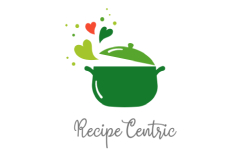In the world of confectionery, Maltesers stand as tiny spheres of controversy for Muslim consumers. You’ve likely encountered these chocolate-covered malt balls, tempting you from store shelves. But before you indulge, you might wonder about their halal status. The answer isn’t as straightforward as you’d hope. With conflicting information and varying certifications across regions, the debate over Maltesers’ permissibility in Islamic dietary law continues to spark discussions among the faithful.
Understanding Halal Food Requirements
To determine whether Maltesers are halal or haram, it’s essential to understand the principles of halal food. Halal foods must:
- Avoid haram (forbidden) ingredients like pork, alcohol, blood, or improperly slaughtered meat.
- Be prepared without contamination from haram substances.
Processed foods like Maltesers require extra scrutiny. Key factors include:
- Checking if any animal-derived ingredients are from halal sources.
- Verifying that cross-contamination with haram ingredients is avoided during production.
- Looking for halal certification from trusted organizations.
In some cases, contacting the manufacturer may be necessary for more details.
Ingredients Analysis of Maltesers
Maltesers’ ingredients generally include:
- Sugar
- Milk powder
- Cocoa butter
- Glucose syrup
- Barley malt extract
- Cocoa mass
- Vegetable fat
- Emulsifiers
While these ingredients are largely halal, there are some considerations:
- Vanilla extract: Can sometimes contain alcohol. According to some sources, Mars has confirmed their vanilla extract is alcohol-free.
- Emulsifiers (e.g., E492): Usually derived from vegetable sources and considered halal.
As formulations can change, always check the packaging for the most current ingredient list.
Manufacturing Process and Cross-Contamination Concerns
Even if the ingredients are halal, concerns about the manufacturing process remain. Maltesers are made in automated facilities where equipment might be shared with non-halal products, raising potential cross-contamination issues.
Mars, the manufacturer of Maltesers, minimizes cross-contamination but can’t guarantee complete absence of allergens or haram substances. Manufacturing processes may also differ by location, meaning the halal status of Maltesers could vary regionally.
Halal Certification Status of Maltesers
The halal certification status of Maltesers depends on the region:
- Halal-certified Maltesers: Found in countries like Malaysia and Australia. For example, the Maltesers Party Bucket in Australia is certified halal.
- Non-certified regions: In the UK, Maltesers are not officially halal-certified.
Always verify certifications or contact the manufacturer for clarity.
Consumer Perspectives and Debates
Muslim consumers hold mixed views on Maltesers:
- Some consider them halal based on permissible ingredients.
- Others label them mushbooh (doubtful) without universal certification.
Social media discussions, especially on platforms like TikTok, reflect the divided opinions. The inconsistency in halal certification highlights the need for clearer labeling in global markets.
Alternatives and Recommendations for Muslim Consumers
If you’re seeking certainty in your chocolate choices, consider these options:
- Halal-certified brands: Various universally halal-certified brands offer a range of certified halal products.
- Similar textures: Look for halal-certified chocolate-covered wafers or rice crisps.
- Local options: Explore artisanal halal chocolates from Muslim-owned businesses.
Always check for halal certification logos and research brands’ halal policies to ensure compliance with Islamic dietary laws.
Conclusion
Maltesers present a tricky situation for Muslim consumers. While their ingredients seem halal, the lack of universal certification creates uncertainty. Your best course of action is to check for halal certification in your region. If in doubt, opt for certified alternatives to avoid potential issues. It’s not just about the ingredients—manufacturing processes matter too. When in doubt, consult a trusted religious authority for guidance.







